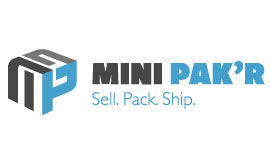Albertsons Acquires Meal Kit Startup Plated
In September Albertsons, a large supermarket chain, acquired Plated, a New York-based meal kit delivery service. In what looks like a move to compete with Amazon Fresh, Albertsons is making their own foray into the meal kit market.
If you’ve seen ABC’s investment TV show “Shark Tank,” a company by the name of Plated might ring a bell. Founded in 2012, Plated is a healthy meal kit business that delivers all the ingredients of a delicious meal straight to your doorstep. A refrigerated package arrives with pictures and step-by-step instructions on how to cook the food within. Co-founders Josh Hix and Nick Taranto appeared on the show in May 2014, presenting a business model to the venture capitalist hosts.
Until their appearance on Shark Tank, they’d been struggling to make ends meet. Taranto tells CNBC, “While Josh developed the website and built out the payment gateways so we could take credit cards, I would go to the local grocery store. I would buy salmon and basil and package it up and put it in FedEx boxes and hand deliver it to the FedEx store, and we had exactly zero repeat customers in our early days.” To fix that they added a third co-founder in 2013, Elena Karp, who possessed the culinary knowledge to ensure customers weren’t receiving thawed, soggy goods. Finally, they began seeing improvements.
After the Shark Tank episode aired and subsequent venture capital deals materialized, the business received an influx of new customers. Fast-forward to 2017. The three entrepreneurs accepted a merger with Idaho-based supermarket chain Albertsons for around $300 million. All three will remain in charge of the business. Instead of a delivery-only model, their meal kits will now be sold in Albertsons supermarkets nationwide.
It’s a move that differs from many that have come before. You may be familiar with Plated’s competitor, Blue Apron. Blue Apron began trading stock publicly in late June, shortly after Amazon acquired Whole Foods. So far it hasn’t gone well. Blue Apron’s stock price is down over 50% since their IPO. A major reason for their lack of success is the high cost associated with the available meals. The cheapest meal is priced at $8.99 per serving.
Of course, it’s difficult for a food kit delivery company to sell their product for much less. Customers are not only buying meals, but also paying for delivery and packaging. It doesn’t help that Amazon recently rolled out its own meal kits. Woe betide companies that try to compete with Amazon on cost and efficiency. What started as a way to break away from traditional grocery shopping has now come full circle. Plated brings the battle back into physical retail.
Plate Presentation

Plated Meal Kits | Image source: New York Post
Nick Taranto isn’t holding back on his goals for Plated, telling CNBC, “We are playing for billions here. We are going to kill Blue Apron, we are going to take on Amazon Fresh. This partnership enables us to become a $10 billion brand in a matter of years.” This acquisition clearly is not a case of desperation. The people behind Plated want to be the biggest name in the meal kit market.
They stand to gain quite a bit from the deal. Plated keeps most of their sovereignty as a company and gains access to a network of over 2,300 physical retail locations to sell their goods. They’ll also save a lot of money in reduced shipping and packaging costs. Meal kits will be held in stores and picked up by customers as part of grocery shopping trips, rather than delivered.
The deal also gives them access to a larger audience. Now Plated meal kits will be visible to thousands of shoppers every day in Albertsons stores.
The Albertsons Theory
Albertsons is not stranger to expansion through mergers. The company acquired the Safeway brand in 2015 in a move that rocketed them to a position as the second largest U.S. traditional grocer, behind only Kroger. It was a bold move that put them $6 billion in debt, but nearly doubled the number of stores under their umbrella. Now, Albertsons has acquired Plated in what seems to be a timely response to Amazon’s Whole Foods acquisition. The grocery market is about to face some serious competition from the retail juggernaut. It’s clear that Albertsons is extremely wary of Amazon, going as far as to postpone its plans to go public after the announcement of the Whole Foods deal. It’s likely the company is choosing to wait and see how the Amazon deal affects the market before making an IPO.

Image source: The Hunger Run
Albertsons is one of many businesses in the crowded grocery market, and Plated is a shrewd investment for them. The company has found a way to stand out from other, similar chains, especially to Millennials. People are embracing the merits of home cooking, but also want simplicity and efficiency. Meal kits provide the best of both worlds, as well as a way for Albertsons to quickly widen its appeal.
If Albertsons is going to compete with Amazon, they’ll need the expertise of the young, successful company. Using the publicity and brand appeal of Plated, they’re able to take advantage of trendy meal kits more quickly than trying to launch a similar product themselves. But why meal kits?
The Business of Making Dinner
Meal kits put pressure on grocery stores by eliminating the need to go to a grocery store. If businesses like Plated become more widespread and are able to lower prices to a competitive level, it could shift the landscape of the grocery market in a way that puts traditional stores at a disadvantage.
The solution for grocery stores is to offer their own meal kits. Physical grocers have a natural advantage in the meal kit market. They are capable of out-pricing standalone meal kit companies like Blue Apron.
Corporations like Albertsons will need to combine their strengths with that of others if they want to remain relevant. Mergers like this could become commonplace as grocery stores attempt to maintain control of their market over ever-present Amazon. The amounts of resources and innovation currently at work in the grocery business are enormous. Businesses that don’t partner with others possessing complementary strengths will likely lag behind.
As other meal kit companies grapple with online-only business models that are proving unsuccessful, Plated is making a calculated and intelligent exit out of Amazon’s preferred playing field. Albertsons is taking an aggressive step into modern food trends, in turn boosting its appeal to a younger demographic. Plated has already survived one shark tank — will this bold new strategy help them, and Albertsons. survive another?

